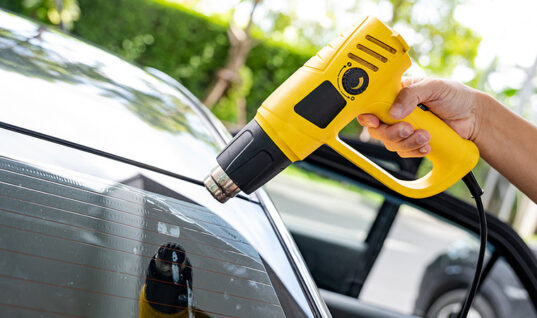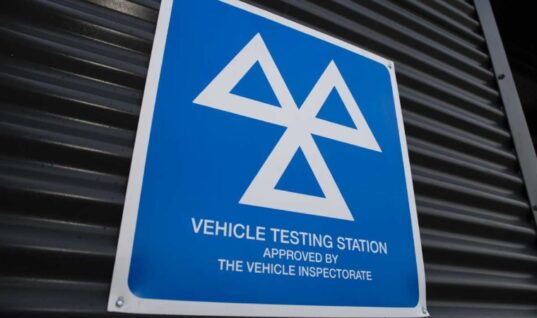Apec, the braking components manufacturer and distributor has released technician guidance for when brake fluid should be replaced.
According to Apec, the recommended intervals for changing brake fluid vary tremendously depending on the manufacturer.
This can be as often as every two years, to never, in some cases.
For example, Chevrolet calls for a brake fluid change on most models every 45,000 miles, while Honda states to do it every three years regardless of the vehicle’s mileage.
Three years is also the recommended interval for most Volkswagens.
Mercedes-Benz vehicles typically call for fresh fluid every two years or 20,000 miles.
In contrast for Ford, Hyundai, Toyota and other manufacturers there are no recommendations for replacing the brake fluid, only instructions to inspect it periodically.
This can cause confusion for vehicle owners and also the workshops that are servicing them, Apec has said.
Why change brake fluid?
Conventional brake fluids are hygroscopic; which means, they attract and absorb moisture from the atmosphere.
This process will take place throughout the service life even though brake fluid is in a “sealed” brake system, as water vapour molecules are able to slowly penetrate the flexible rubber brake hoses.
Lower brake fluid boiling point
Over time, this results in a decrease in the boiling point of the brake fluid and increases the risk of corrosion to metal components.
As the proportion of moisture in the brake fluid increases, the boiling point will eventually reach a critical level where it is dangerous.
This process will take place throughout the service life even though brake fluid is in a “sealed” brake system, as water vapour molecules are able to slowly penetrate the flexible rubber brake hoses.
Over time, this results in a decrease in the boiling point of the brake fluid and increases the risk of corrosion to metal components.
Dangerous boiling point
As the proportion of moisture in the brake fluid increases, the boiling point will eventually reach a critical level where it is dangerous.
The resulting friction generates significant quantities of heat.
While much of this heat is intentionally dissipated to the atmosphere, some of it will inevitably be transferred to the calipers and wheel cylinders which contain brake fluid.
This will cause the fluid to heat up.
If the temperature is allowed to approach the boiling point of the brake fluid, bubbles of vapour will form in the brake system.
Unlike a liquid, a gas is compressible.
Consequently, the next time the brake pedal is pressed, its travel may all be used in compressing the vapour, resulting in a complete loss of braking.
The lower the boiling point, the greater the danger of resulting ‘vapour-lock’ occurring.
Checks to make
By checking and replacing when necessary, this can be avoided.
For the safety of the vehicle occupants, Apec’s Techmate recommends that the brake fluid should be tested with a device that boils the brake fluid at every vehicle service and brake job.
Apec has said technicians should avoid using a pen-type tester as these are often inaccurate and can give misleading or dangersous results.
When to replace brake fluid
The company recommends that brake fluid should be replaced every two years or when the boiling point drops below 200°C.
If the boiling point reads below 180°C, the brake fluid should be replaced immediately.
For further information on brake fluid, see Apec’s technical bulletin ‘Brake Fluid FAQs’ here.
The braking brand has also released 16 new product references to its catalogue, covering discs, pads, drums, hoses, wheel cylinders and ABS sensors.
Find out more about Apec and its braking product solutions and advice by clicking ‘more details’ below.







